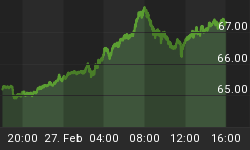According to the prison inmate handbook, it is strictly forbidden for inmates to conduct any kind of business from behind bars—unless, of course, you are a jailed pharmaceutical executive who exorbitantly hiked essential drug prices, aka the ‘Pharma Bro’.
Martin Shkreli, former CEO of Sweden-based Turing Pharmaceuticals AG, has been serving time for the past 16 months. Yet armed with a contraband phone, Shkreli has been covertly running the company he founded four years ago behind bars, plotting a comeback. He’s even been firing people who fail to comply.
Ponzi scheme
For many readers, the fact that a pharmaceutical executive is actually doing time for hiking drug prices might sound totally incredulous. After all, Big Pharma, especially the biopharmaceutical industry, has repeatedly come under fire for its pricing mechanism--especially on new ‘wonder drugs’--with price caps being one of those rare proposals that have united all politicians from Bernie Sanders to Donald Trump.
Still, Shkreli’s 7-year jail term might be well deserved. First off, Shkreli gained notoriety for a 5,000 percent hike in the price of a drug used to treat HIV patients. However, that’s not the crime for which he’s behind bars. Admittedly, in 2015, the former CEO of Turing Pharmaceuticals shocked the world after he purchased the rights to Daraprim, a decades-old anti-parasitic drug, and abruptly hiked its price from $13.50 a pill to $750 a pill. That crazy price hike brought widespread condemnation—and windfall profits for Turing.
The extent of Shkreli’s devious schemes and sheer avarice would make the worst criminals cringe. Shkreli was actually convicted for what federal prosecutors described as running a Ponzi-like scheme that duped his hedge funds investors by siphoning millions of dollars from Retrophin, a biopharmaceutical company he founded 11 years ago.
Related: Lending: The Good, Bad, And Ugly
Shkreli did step down as Turing’s CEO after the charges and convictions while Phoenixus desperately tried to distance itself from the disgraced executive by changing names twice--first to Vyera, then to Phoenixus, its current name.
But that’s as far as the remediations went. So in the end, we shouldn’t be surprised: He’s not behind bars because of his greed and his pharmaceutical lack of mercy; he’s behind bars because he cheated hedge fund boys.
Phoenixus failed to lower Daraprim’s price—and has had to contend with intense competition and public backlash as a result. The company lost $1.2 million in the third quarter of 2018 before booking another $10.3 million loss in the year-to-date. With just $37.7 million in cash and a serious cash burn, the private company will be lucky to survive for much longer without a significant infusion of fresh capital.
Meanwhile, Retrophin Inc. (NASDAQ:RTRX) has not been doing too well either for a biopharma--even after firing Shkreli as CEO five years ago. As Retrophin CEO, Shkreli acquired licensing rights to Thiola, a drug used to treat cystinuria patients, in 2015, and promptly hiked the price from $1.50 per tablet to $30 per tablet, a 2,000 percent increase.
Plotting a comeback
Despite the trail of destruction, he has left in his wake, Martin Shkreli is far from a beaten man.
Instead of showing remorse, Shkreli has been working day and night plotting a comeback when he is finally released from prison in 2023. In September, Shkreli reportedly oversaw a $20 million deal with Orphan Star Therapeutics LLC for the development of a drug for the treatment of a rare disease. Then again in January, Phoenixus licensed one of its drugs to a company called Seelos.
You’ve got to give the man props for his obdurate optimism. By his own calculations, Phoenixus could be worth a cool $3.7 billion by the time of his release. Nobody’s sure how much stake in the company is worth though such a hefty valuation would call for a handsome 740 percent gain from its 2017 valuation of $500 million.
Its yet another story to make you empathize with the view that Big Pharma is simply rotten to the core.
By Alex Kimani for Safehaven.com
















